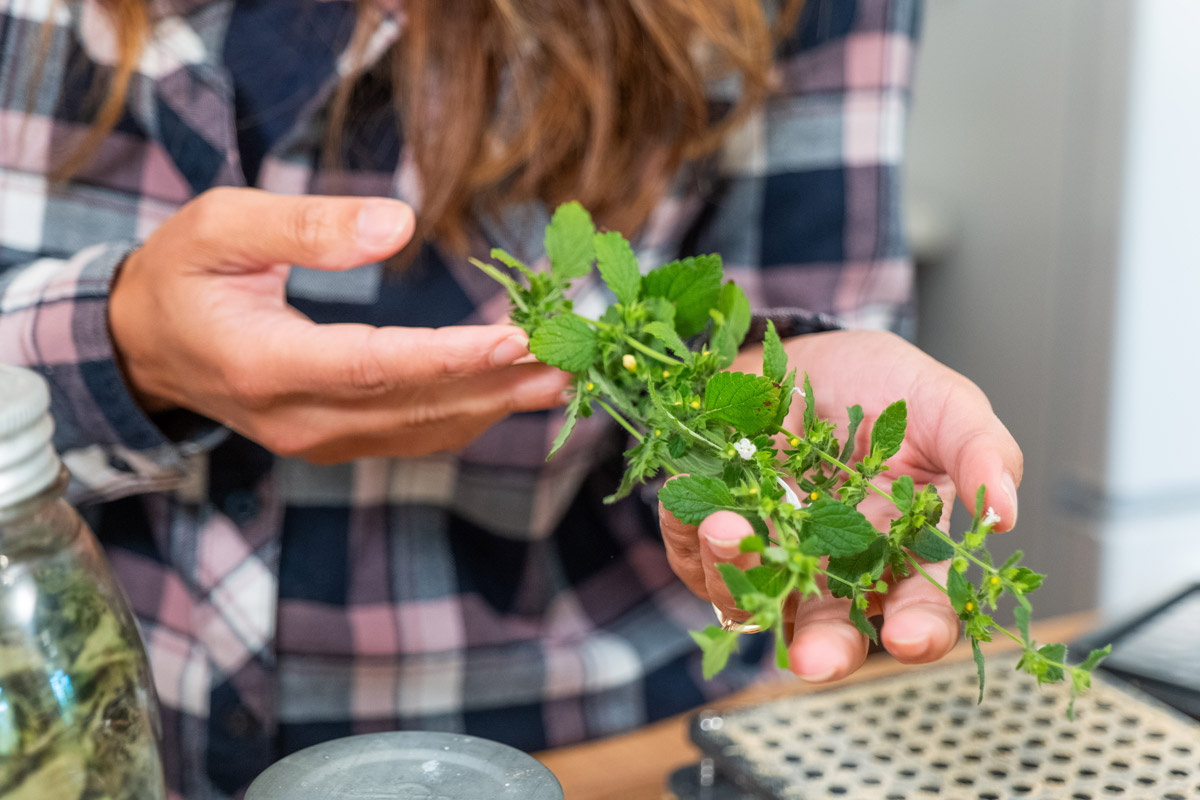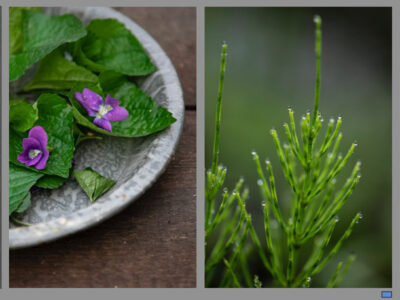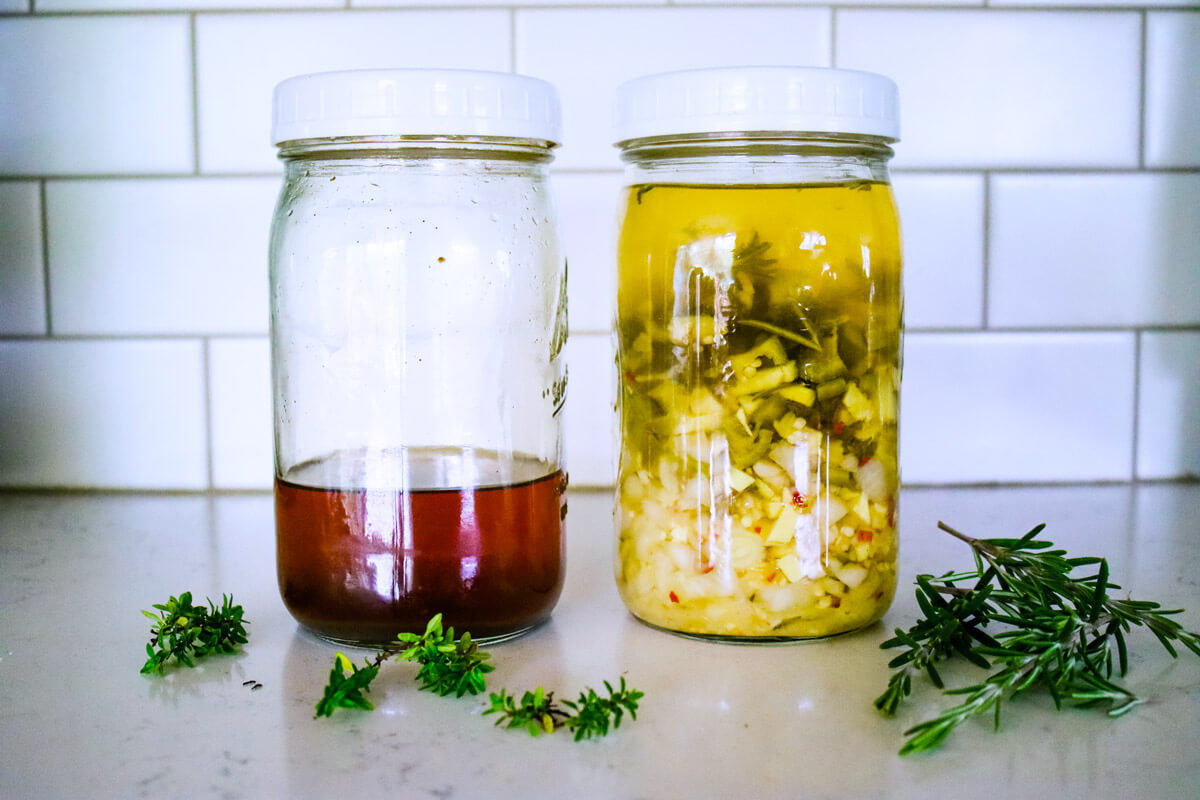In this guide, learn how to use medicinal herbs and natural remedies to address common ailments. The guide is organized by ailment, making it easier for you to find the information you need. Start creating the list of medicinal herbs you need to stock your herbal medicine cabinet now.
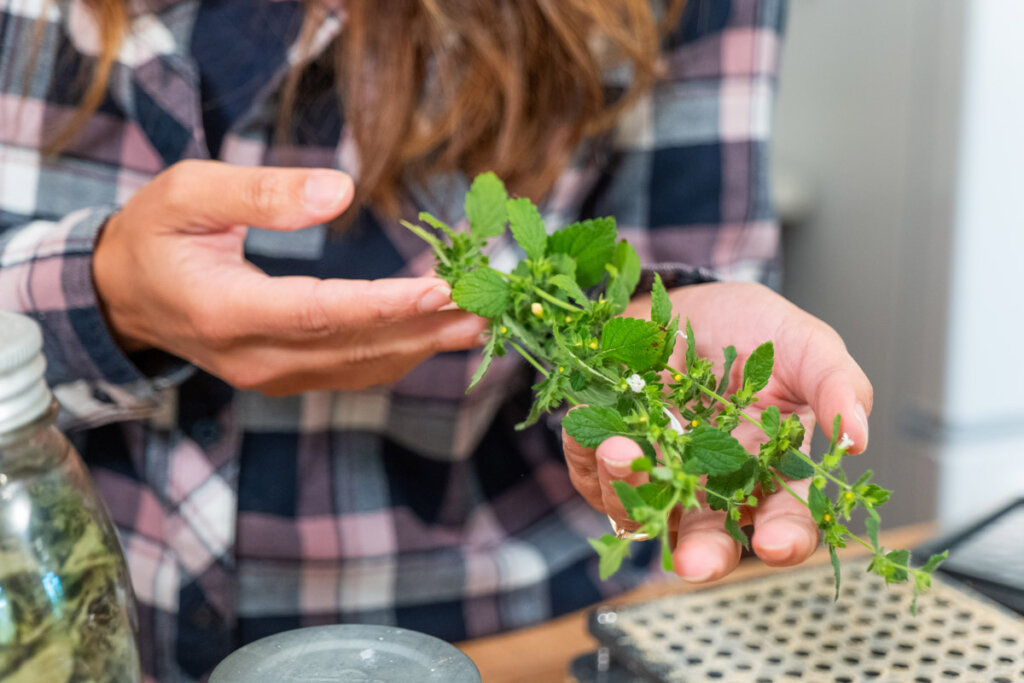
If you're interested in learning more about harnessing the power of herbs and natural remedies, building your own natural medicine cabinet, and understanding when to opt for home remedies or modern medicine, you've come to the right place.
This post was originally published with podcast episode #168 with Marjory Wildcraft from The Grow Network. You can listen to that podcast episode at the top of this post.
It has since been updated with my video interview with Dr. Patrick Jones from Homegrown Herbalist and includes even more herbs and their many uses. Listen in (or watch) below to the full podcast, Episode #429 Must-Have Herbs for Your First-Aid Kit:
This post also includes my podcast interview with registered herbalist Rosalee De La Foret. Listen in below to the full podcast, Episode #202 Best Herbal Home Remedies for Cold and Flu:
This post also includes a podcast on natural cough and cold remedies. Listen in below to the full podcast, Episode #109 Seven Natural Cough and Cold Remedies.
It's important to note that I am not a certified medical practitioner. This post is not intended to diagnose or treat but is for informational purposes only. Please contact your healthcare professional before introducing new herbal and natural remedies into your wellness routine.
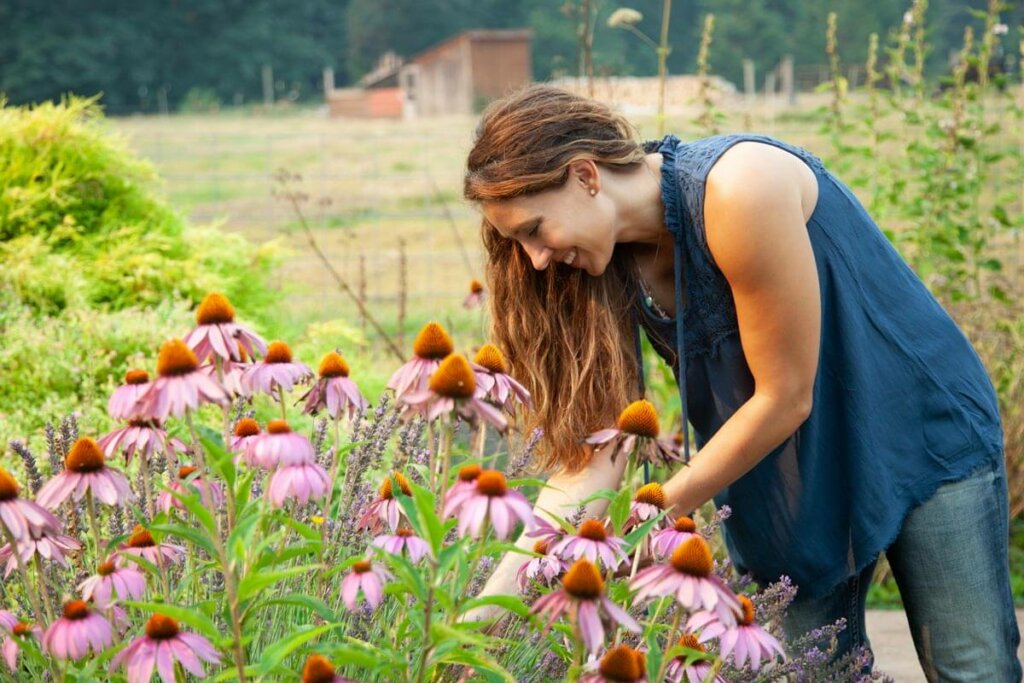
Why I Love Medicinal Herbs
There are many reasons why I love herbal remedies. The fact that I can grow medicinal herbs in my own backyard and forage for wild medicinal herbs is a huge factor. Beyond that, I really don't like to be reliant on healthcare, and we've all seen just how easy the system can go from readily available over-the-counter medications to empty shelves.
This can be scary if you're reliant on those medications. Knowing what medicinal herbs are capable of and how to grow and use them for yourself is a great failsafe to have in place.
In my book Hand Made: the Modern Guide to Made-from-Scratch Living, discover how to use your herb and spice cabinet to create a natural medicine cabinet, with charts, herbal properties information and recipes to help you make it at home.
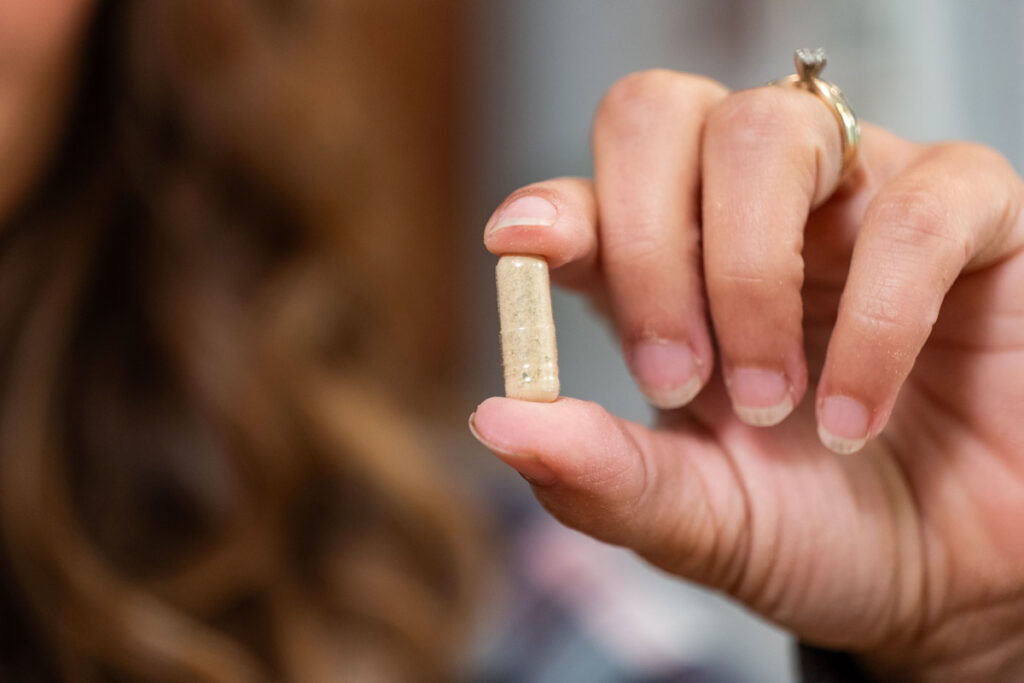
Why Learn About Natural Medicine
I've become very passionate about natural remedies and medicinal herbs, for more than just the reasons listed above. Sometimes, multiple herbs have different roads to the same outcome. This is great for diversity. If we give the body ten different herbs to choose from, it'll choose the one it needs to get the job done.
This diversity of action keeps people from becoming herb-resistant. This is also why I love blending herbal teas. If you have a headache, blending a few herbs together can give your body a better chance at fighting off the pain. (Source)
Furthermore, herbs can act as adaptogens for your body. (Source) Meaning, maintaining a level of homeostasis so your body is ready to ward off illness at the onset. I love making my homemade stress-relieving capsules filled with beneficial herbs.
Here are a few more reasons you may want to start on your own journey of learning to use natural remedies and medicinal herbs:
- Self-Reliance in Healthcare: Knowing how to care for your family with natural remedies is crucial, especially in situations where the healthcare system may be strained or inaccessible.
- Avoid Harmful Chemicals: Many over-the-counter medicines contain harmful ingredients or petroleum-based products. (Source) Learning natural remedies can help you avoid these toxic compounds.
- Peace of Mind: Caring for your loved ones with natural remedies gives you peace of mind that, if the worst should happen, you'll know what to do and how to help.
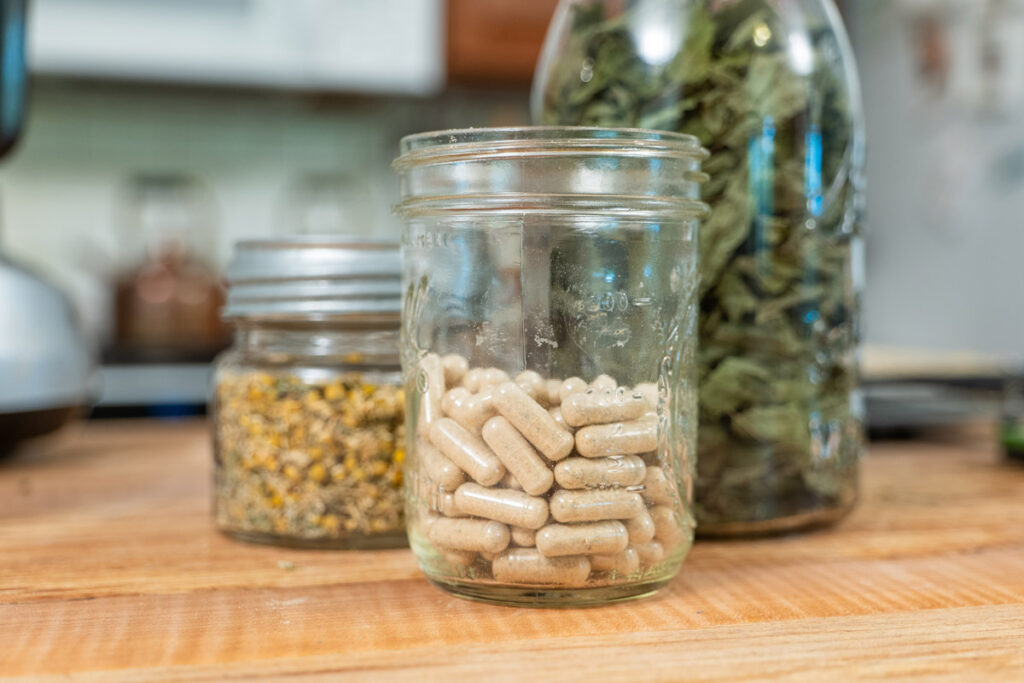
Know When to Seek Professional Help
As with anything, it's important to do your own research and know when to seek professional help. The medical system is incredible, and there are many times I'm extremely grateful for them.
Knowing the difference between times when professional care is needed, or my own herbal remedies can be used is important. If you're new to natural home remedies, start small and gain confidence over time. The key is practice and learning as you go.
While many ailments can be treated at home with natural remedies, there are instances where modern medicine is necessary. Always be honest with yourself about when to seek professional medical assistance.
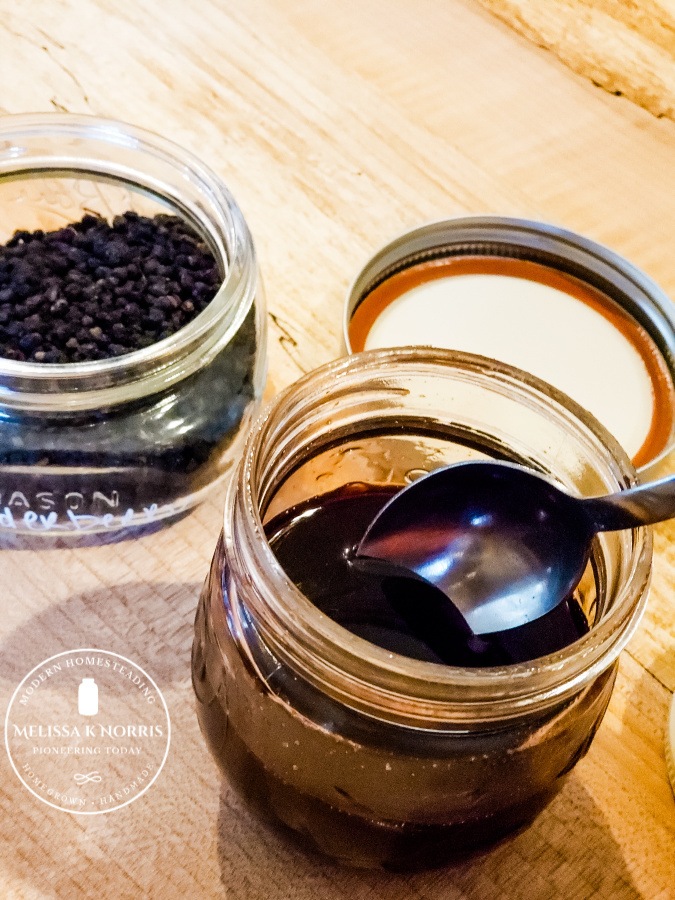
My First 3 Steps at the Sign of a Cold
Herbs are one of the greatest ways to help boost our immune system. (Source) Here are the first three things I do at the onset of any sign of a cold or the flu.
- Immune system support: I immediately begin using an immune-boosting herb at the first onset of symptoms or signs of not feeling well. I usually use Echinacea tea or Elderberry syrup. Having a hard time finding elderberry anything these days? Learn how to grow elderberries and make elderberry products yourself! (Source)
- Sleep: Herbs and essential oils are part of my arsenal, but one of the most basic and often overlooked items is making sure I'm getting adequate sleep and rest. One of the best things we can do when we're feeling under the weather is to get extra sleep.
- Hydrate: Water and liquids help my throat feel better and keep my system flushed.
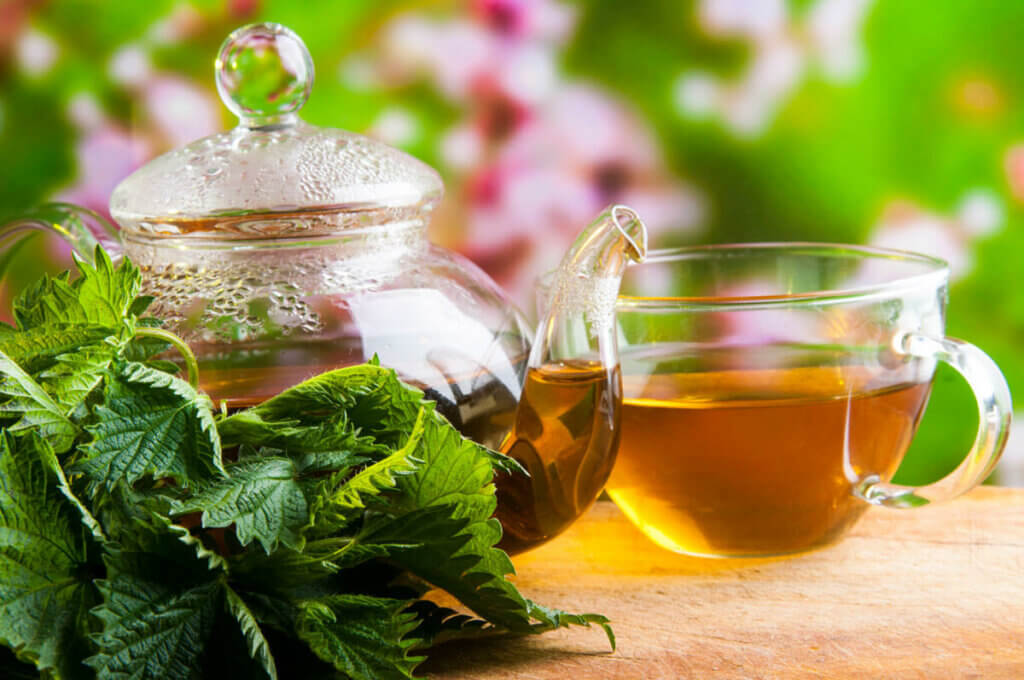
Ways to Use Medicinal Herbs
There are a few ways to use medicinal herbs at home. Depending on the issue, one or more of the following methods can work:
Herbal Tea
Many of the remedies listed below are in tea form. It's important to note that when making a medicinal tea, you steep it differently than regular tea.
- Fresh leaves: Rinse fresh herb leaves under cold running water and place about three large leaves in the bottom of a cup. Pour hot water over, cover the cup and allow to steep for up to 7 minutes.
- Dried leaves: A tea ball (I use this stainless steel tea ball and even have put spices in it when making jams or brines) or tea infuser works best when using dried leaves. Fill your tea ball with dried leaves and pour hot water over. Cover and allow to steep for about 7 minutes
Read these posts to learn how to harvest herbs for medicinal purposes, how to dry herbs at home, and this post for my favorite herbal tea blends.
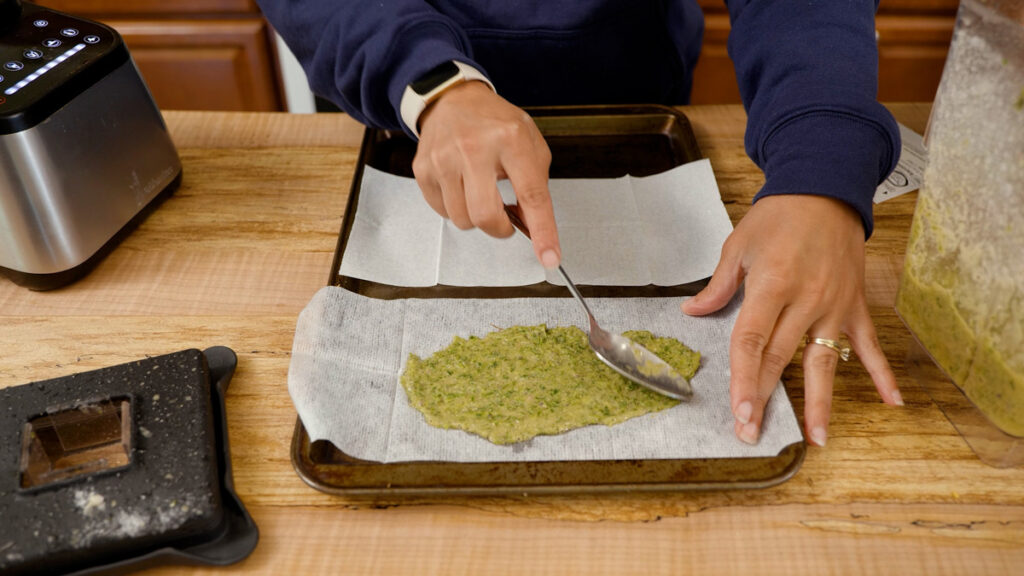
Poultice
An herbal poultice involves taking the leaves (or sometimes the root of the plant) and placing them into a piece of gauze or muslin. Then, the poultice is applied to the affected area and left on for the preferred duration of time.
How to Prepare an Herbal Poultice
There are two ways to make a poultice: one is using the leaves and roots raw, and the other is heating them.
- Raw poultice: Finely chop up the leaves/roots or use your blender, adding as little water as possible to make a puree. Place this into your gauze or muslin. You can see me make a comfrey poultice for a badly sprained ankle here. (Source)
- Hot poultice: Take the leaves/roots and place them in a saucepan with a double ratio of water to the herb (e.g., 1/4 cup herbs to 1/2 cup water), bring to a simmer, and cook for a couple of minutes. Then, take a cloth, dip it into the herbal water, wring out the excess and place it onto the affected area. It's ideal to have an extra towel handy to catch any drips.
Important note: The time you'll leave a poultice on will vary depending upon the ailment and the herb. For example, a mustard poultice/plaster would not be left on for a long period of time due to its hot, burning nature, whereas a comfrey poultice might be left on for up to 24 hours. You need to replace your poultice regularly. (Source)
Infusion or Decoction
An herbal infusion is simply an herbal tea fully matured. Instead of allowing the herbs to steep for 5-7 minutes, you let the tea steep for an hour, putting it on super strength.
A decoction is when you boil the smashed or chopped herbs, roots, or sometimes bark in water and allow it to boil and steep for some time. Basically, the extended hot water bath version of an infusion.
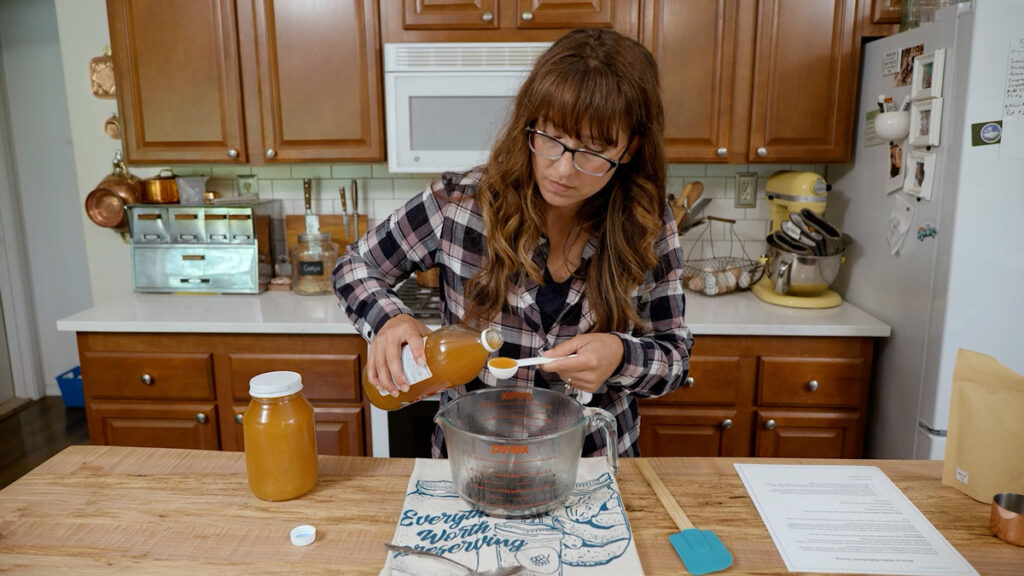
Syrup
If you have children or picky, finicky people in your household, then making an herbal syrup will probably be your easiest option as far as compliance goes.
Medicinal syrups are shelf-stable and last longer than infusions or decoctions, which means you can make them ahead of time. That way, when you're not feeling up to par, you don't have to deal with making an herbal remedy… it'll already be ready to go.
Learn how to make herbal syrups by following me elderberry syrup recipe here.
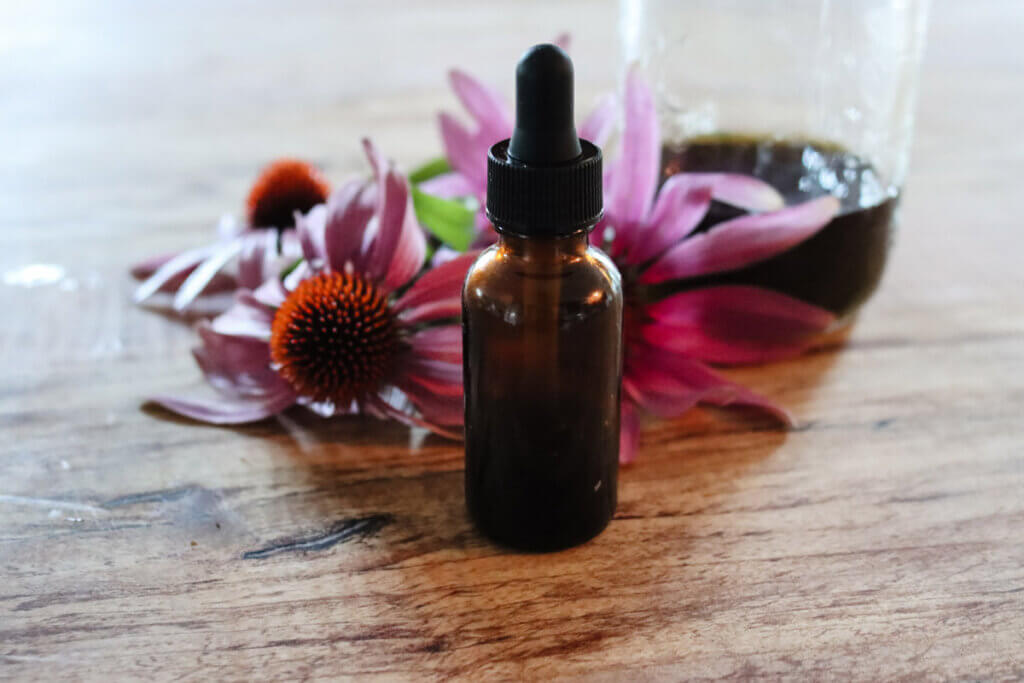
Tincture
A tincture is a homemade herbal extract. You can use either alcohol, apple cider vinegar, or glycerin. However, your shelf life is better with alcohol, and there is less chance of mold. Here's how to make an echinacea tincture. The same principles apply with other fresh herbs.
Tinctures can be taken by themselves or added into syrups, salves and lotions.
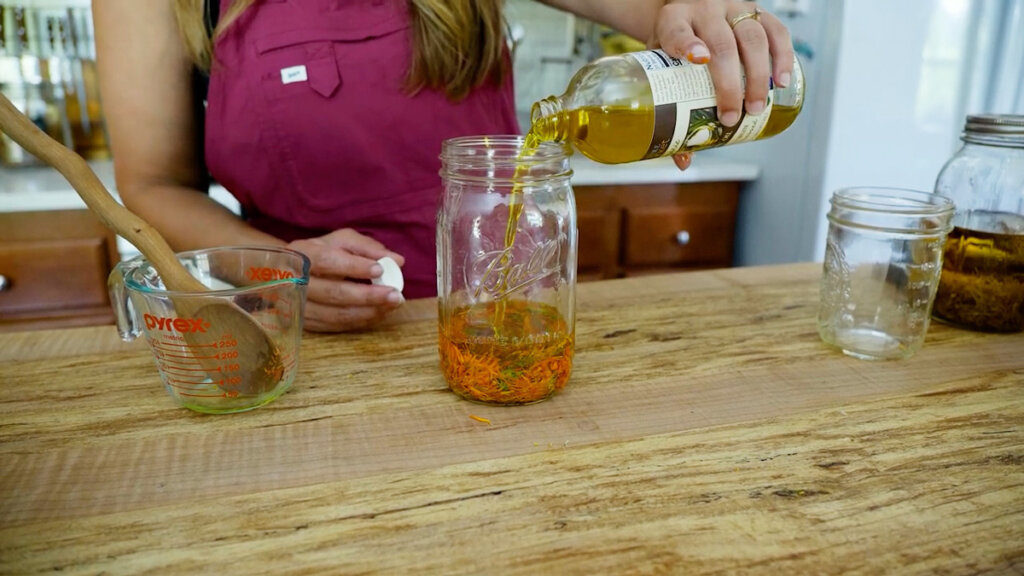
Herbal Oil
Herbal oils are made and then used as is or turned into salves, balms, creams and lotions. To infuse oil with herbs watch my FREE video training with both the traditional method and the fast “I need it now” method. Both are very easy to make. Click here to make your own herbal-infused oil.
You can also learn to make homemade calendula oil here.
Once you have your herbal oil, you can learn how to make a homemade wound-healing salve, this homemade peppermint salve for dry skin, this DIY sore-muscle rub, or this dandelion salve.
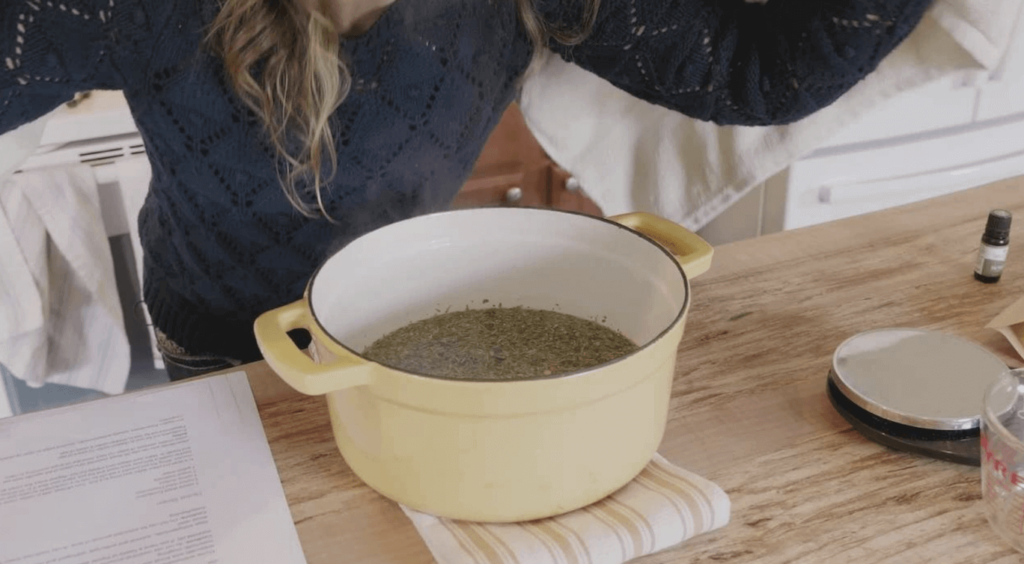
Herbal Steam
Herbal steam not only makes your house smell wonderful while eliminating those fake chemicals in other scented options, but it has therapeutic benefits as well. I enjoy cooking on our wood stove during the winter months and also like to put a kettle of water on to act as a humidifier, but adding some medicinal herbs to the mixture will punch things up even further.
Add herbs to a pot of water and allow to simmer lightly. You can also add herbs to a heat-proof bowl and pour just simmered hot water over them.
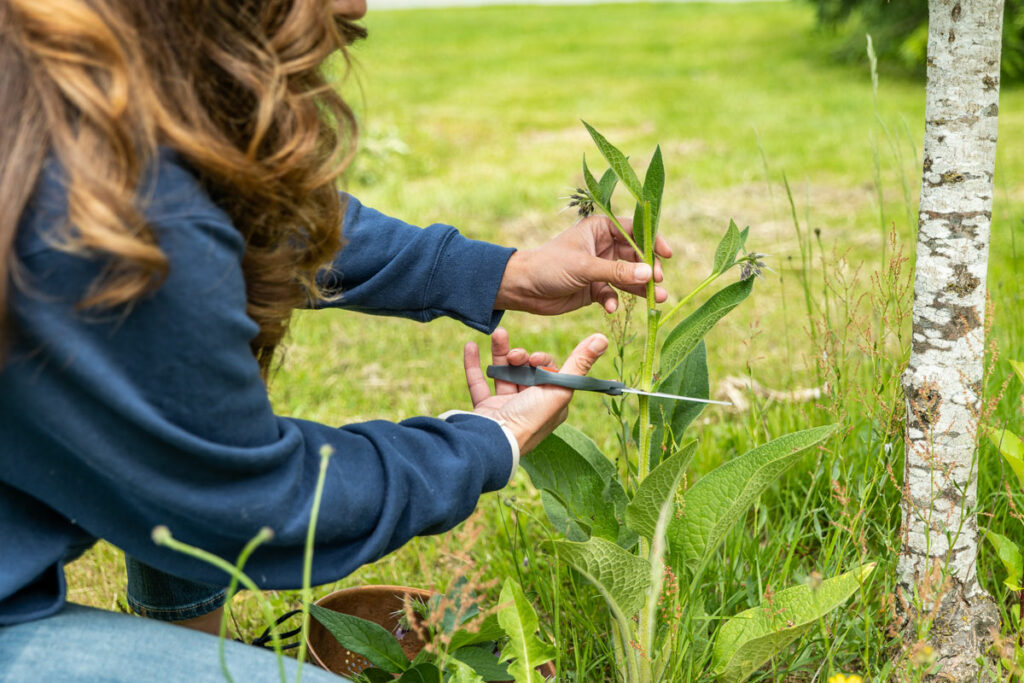
Common Ailments & Herbs
Now, let's delve into addressing common ailments using natural remedies and the ten essential herbs.
Wounds & Lacerations
- Crush fresh yarrow for minor wounds and create yarrow powder for convenience. For severe wounds, use yarrow tincture internally and sprinkle yarrow powder on the wound. Yarrow (Achillea millefolium) stops bleeding, acts as an antibiotic and reduces inflammation. (Source)
- Poultices made from plants like plantain or prickly pear. (Source)
- Raw honey for minor wounds. (Source)
- Homemade Herbal Wound-Healing Salve: My homemade salve recipe uses calendula oil because it has antibiotic, immune-stimulating, lymphatic-stimulating, and anti-inflammatory properties. (Source) Calendula also aids in healing, eases menstrual cramps, and even fights off herpes viruses like cold sores and shingles. Use the whole flower for maximum medicinal benefits. (Source)
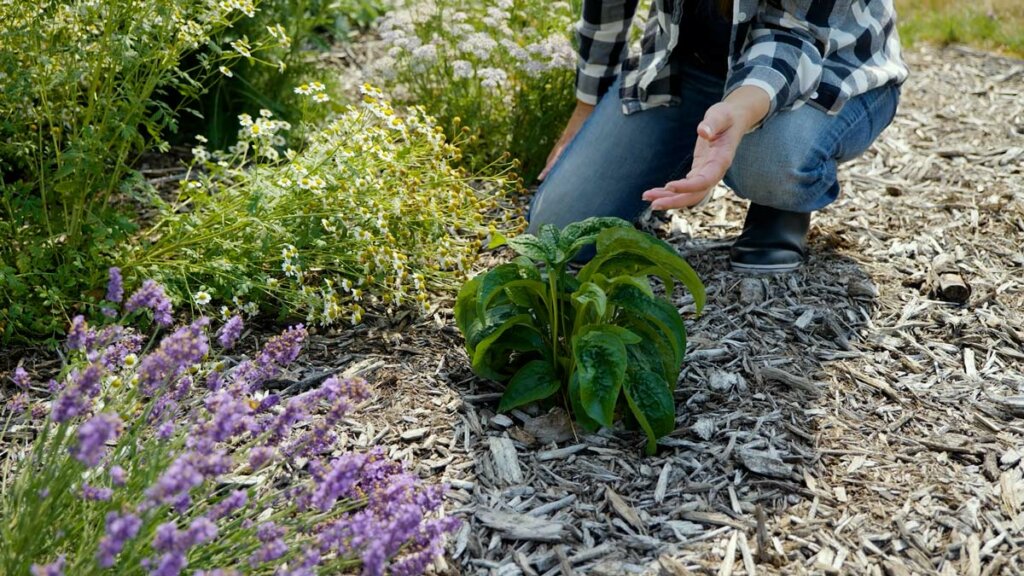
Burns, Stings & Rashes
- Burns: Use aloe vera or prickly pear cactus for burns. Tear off a leaf and squeeze out the mucilaginous liquid. Spread that onto the burn and cover it with a clean cloth or bandage. (Source)
- Plantain for Stings: Plantain is great for stings. You may be surprised to find this herb growing right in your own backyard. If you do, simply chew up a leaf and place it directly over the sting. (Source)
- Baking Soda for Bee Stings: This remedy is great for stings that itch or irritate. Mix up a paste of baking soda and water and apply it directly to the sting. It should take away the itching within a few minutes. (Source) Note: If you're allergic to bees or suspect an allergic reaction, Benadryl or Diphenhydramine is always smart, along with a call to a Doctor.
- Rashes: If you're brave enough, an old-time remedy for rashes is your own urine. Though you probably won't find me using this remedy anytime soon! (Source)
- Sometimes, doing nothing for a burn, sting or rash and allowing the body to heal naturally is the best approach.
Coughs & Colds
- Bone Broth: There's a reason grandma always fed us chicken noodle soup when we were sick. Turns out, homemade bone broth is a powerhouse when it comes to healing from a cold or the flu. (Source) I always make mine with basil, garlic, sage, rosemary and tumeric. Not only do these add to the flavor (along with homemade bone broth) but the herbs and spices have their own healing properties.
- Homemade Elderberry syrup: This is always my go-to when the weather changes. We take it preventatively because it's a great immunomodulatory, meaning it stimulates our immune system. It has also been proven to shorten cases of a cold or flu. (Source)
- Garlic for an Antibiotic: Crushed garlic makes a potent antibiotic. Add fresh garlic to anything you're cooking! (Source)
- Sinus Congestion: Use hot peppers (e.g., cayenne or jalapeño) for sinus congestion. (Source) Try this Fire Cider Recipe to combine the healing powers of garlic, peppers, onion and more!
- Mustard Plaster for Chest Congestion: My husband's mother and grandmother swore by using mustard plaster for chest congestion. It's actually great for chest congestion and for sore muscles and pain because it's a counter-irritant (good info here on the actual enzyme). Think capsaicin cream, it's very warming to the skin. Note: Mustard plaster applied directly to the skin can result in blistering burns! Do not apply it directly to the skin. Here are instructions on how to make a mustard plaster, application and how long to leave it on. (Source)
- Cough Suppressant/Expectorant: Mullein flower and leaf (the flower is stronger than the leaf but harder to harvest, the leaf works well also) is great for opening up airways, as a cough suppressant and expectorant for getting phlegm out of the lungs. (Source)
- Steam Inhalation for Congestion: When your nose is congested and you feel like you can't breathe, take a hot shower. Or, fill a sink or pot with hot water and make a tent with a large towel over your head. Lean over the hot water, trapping the steam, and breathe it in deeply. Make sure you use common sense and don't burn yourself. The steam will help loosen up your congestion and allow you to cough up the ick more easily. Add mint! Menthol (derived from the mint family) is often used in humidifiers and as aroma therapy. Try adding a drop of peppermint or eucalyptus essential oil to the water. (Source) Note: Some people (especially small children) may have sensitivities to peppermint and especially eucalyptus, it's not recommended to use this method with infants or small children. Watch for any signs of irritation when using this method of adding the menthol family to your steam.
- Throat Soothing Tea: This is my go-to recipe for a throat soothing tea. Combine 1/2 teaspoon marshmallow and two fresh sage leaves (or 1/4 teaspoon dried sage) and steep in 12 ounces of hot water, covered for five minutes or so. Add in 1 teaspoon elderberry syrup and 1/4 teaspoon dried lemon for flavor. The elderberry syrup will sweeten it a bit, but if you need more sweetness, add honey, to taste.
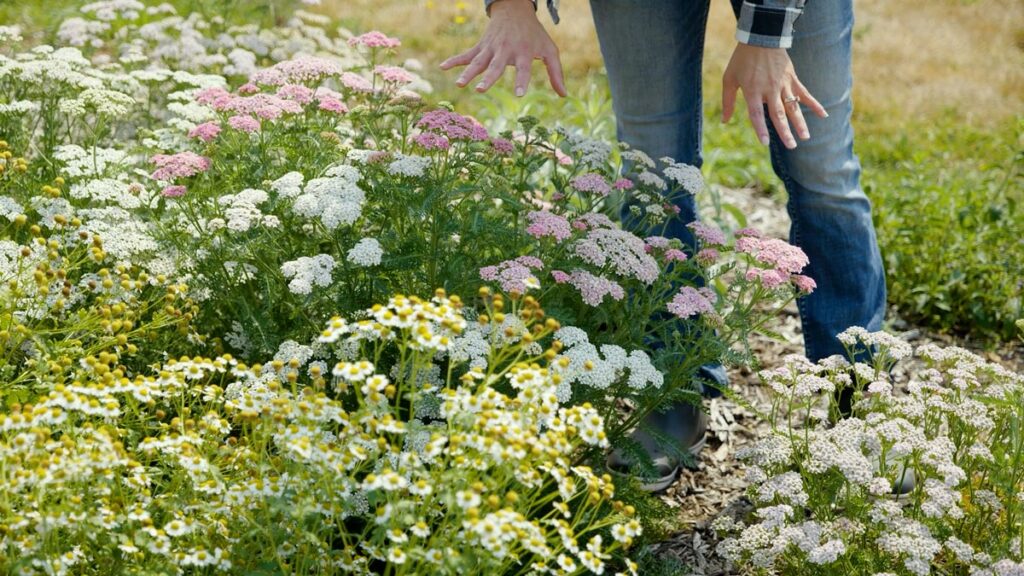
Fevers & Chills
Sometimes, with a fever, doing nothing is the best approach. A fever is the body's natural defense mechanism to “cook out” a virus.
- Cold Rag – Use a cold rag on the forehead to provide comfort.
- Herbs: Yarrow can also be used to help with fevers. (Source)
- Chamomile Tea for a Fever: Brew 1/3 to 1/2 cup dried chamomile flowers in 16 ounces of hot water. Cover the cup and let steep for 15 minutes. Strain out the herbs and drink. This is a recipe for an average-sized adult. Pro Tip: This is not going to taste like a chamomile tea bag from the store. It's going to be very strong. It's going to be bitter, but it's not undoable. Add some honey, to taste, if needed. (Source)
- Herbal Bath – Draw a bath and add the chamomile tea recipe above to the bath water.
- Cayenne Tea for Chills: If you have a fever with chills, you can make cayenne tea. Start with 1/4 teaspoon of cayenne powder and add to 12 ounces of boiled water. Stir until dissolved and drink. You can also add a bit of honey and a squeeze of lemon to improve the flavor and make it more palatable. Sip the tea very slowly. You don't want to drink it too fast, or it might make you nauseous if it's very hot.
- Seek medical help if the fever is very high or exhibits rapid spikes and drops.
Indigestion & Stomach Aches
- Peppermint tea for soothing stomach aches. (Source)
- Use Digestive Bitters to support digestion. (Source)
- Ginger for Nausea and Upset Stomach: Ginger is actually a powerhouse in the medicine cabinet and can be used for not only nausea and upset stomach, but also for headaches, arthritis pain, and cold feet. Check out this article on the powers of ginger. Note: Ginger works well for helping soothe an upset stomach, but if you're on blood thinning medications or have a blood clotting disorder (such as my daughter), you shouldn't use ginger.
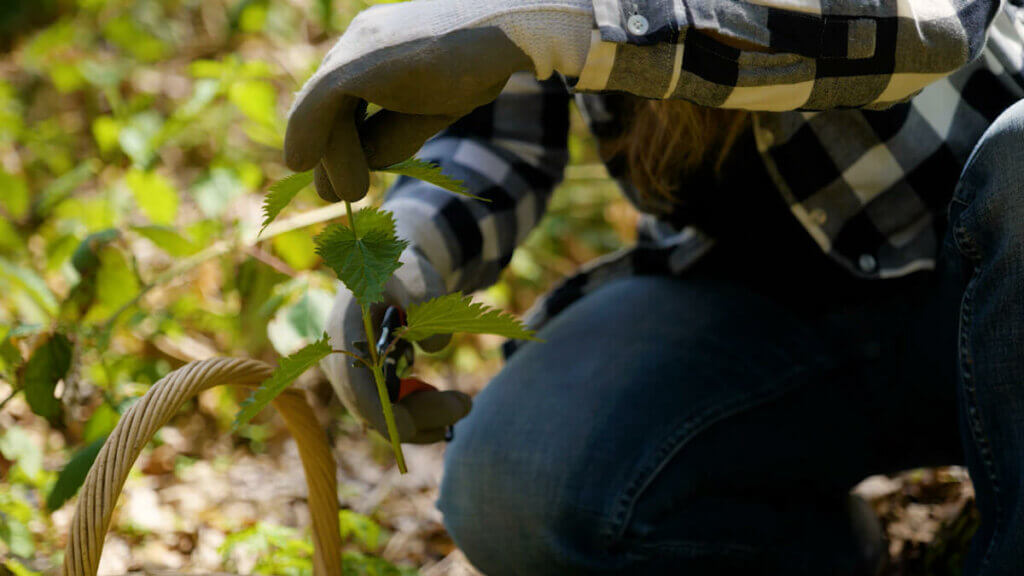
Respiratory Ailments
- Mullein Flower and Leaf: These are great for opening airways, acting as a cough suppressant and expectorant, and even as a wormer. The flower is stronger but harder to harvest; the leaf is also effective. (Source)
- Stinging Nettles and Brigham Tea: These herbs serve as antihistamines, making them ideal for anaphylactic reactions. (Source) Learn more about harvesting stinging nettle and its benefits and how to make stinging nettle tea.
- Crampbark and Lobelia: These herbs are essential during asthma attacks, offering anti-spasmodic and muscle relaxant properties. (Source)
- Oregano or Thyme Tea: Make a soothing and warming tea with 1 to 3 teaspoons of dried oregano or thyme. Steep in 12 ounces of hot water, covered, for five minutes or so. Sweeten with honey, to taste. (Source)

Headache
When it comes to a headache, it's good to know what's causing the headache. This is where we can become our own investigator. Are you under stress? Have you been straining your eyes (hours of screentime)? Knowing the culprit of the headache can sometimes help know which remedy to reach for.
- An herbal steam is a great option for clearing clogged sinuses that might be causing a headache.
- Drinking tea is another great option as you can sip on this throughout the day, giving you a steady dose of herbs. My favorite tea remedy is a combination of peppermint, lemon balm and wood betony. In fact, I created a “Naggin Noggin Tea” blend with these three herbs you can purchase from Farmhouse Teas. Learn how to make medicinal tea here.
Pain
- Hops and Skullcap: These herbs are effective for pain relief when used as tinctures. (Source)

Tendon Pain & Swelling
- Comfrey: It's anti-inflammatory when applied topically (like this comfrey poultice) and is helpful for tendon pain and swelling.
- Some herbs can be taken internally for inflammation, including turmeric, (Source) willow tree-related herbs (aspen, willow, poplar, birch), Spirea, and Devil's Claw.
Liver & Kidney Health (Cleansing Herbs)
- Burdock and Dandelion: These herbs are excellent for cleansing and detoxifying the liver and kidneys. Incorporate a spoonful of burdock root powder or dandelion root powder into your diet for pain relief and toxin elimination. (Source)
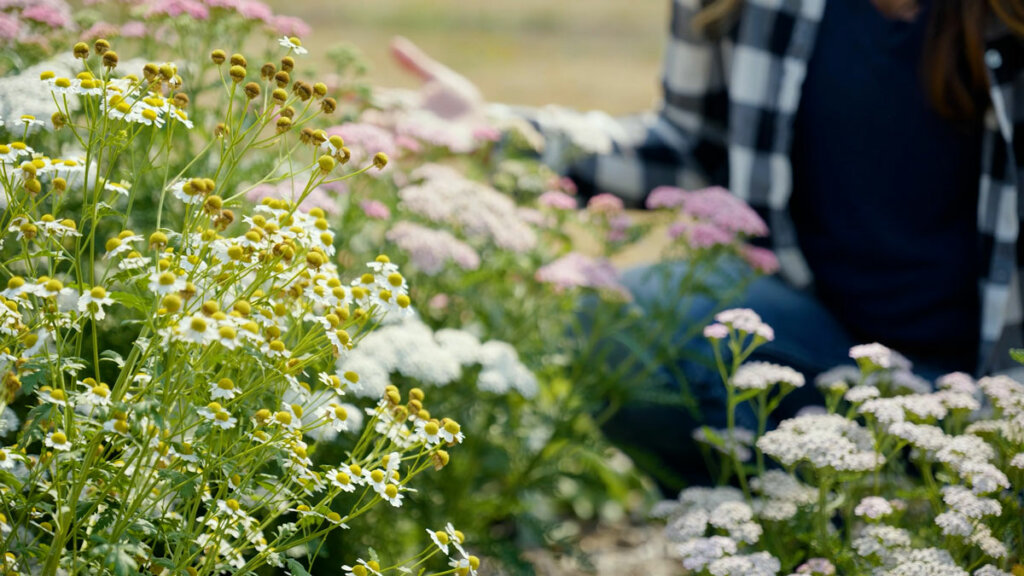
Anxiety & Insomnia
These herbs can help tame your anxiety.
- Chamomile tea in the evening for relaxation. (Source)
- Lemon Balm tea thirty minutes before bedtime. (Source)
- Valerian tincture or glycerin for calming effects. (Source)
- CBD oil to ease stress and soothe the nervous system. (Source)
Lice
The dreaded lice, if you've ever had it go through your house, you know just how awful it can be. If you hear of lice going around your child's school, youth group, Sunday school, etc, you can use the shampoo preventatively.
- Wash hair daily with regular shampoo and a few drops of peppermint essential oil as a repellent.
- Use a lice comb daily for at least two weeks to break the lice's life cycle.
- Though not an herbal remedy, Diatomaceous Earth is also a great treatment to kill lice and eggs. (Source)
Energetics of Herbs
One of the aspects of herbalism that I find fascinating is the energetics of herbs. If you listen to the podcast above with Rosalee De La Foret, she explains the four energetics of herbs: hot and cold, damp and wet.
She goes into multiple examples of how to tell what you're experiencing and then how to know what herbal energetic is needed for the remedy.
By incorporating these herbs and natural remedies into your daily life, you can rest assured you have the herbal remedies at your fingertips to maintain your family's well-being.
Remember that herbal medicine is a process that requires proactive health practices and a willingness to explore what works best for you and your loved ones.

Other Posts You May Enjoy
- How to Prune Herbs & Perennials for Maximum Growth
- How to Plan a Medicinal Herb Garden
- Medicinal Kitchen Herbs (6 Herbs You Should Grow)
- Benefits of Rosehips (Growing, Harvesting & Medicinal Uses)
- 5 Tips to Harvest Herbal Flowers for Medicinal Purposes
- Best Methods for Drying Herbs for Stronger Medicinal Properties
- Herbal Home Remedies for Cold and Flu
- The Link Between Honeybees & Plant Medicine
